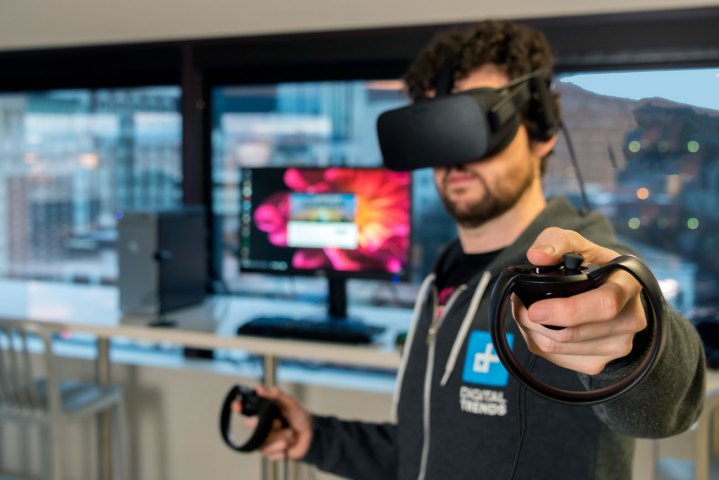
“We do want to do OS X (MacOS) support for Rift. It’s not something that’s currently on the roadmap for — I can even say — the next six months,” Mitchell said. “We will continue to revisit it. The real challenge for us is just how much we invest into that space because it does require a lot of our time and energy to get it right and to deliver a great experience.”
Right now, the OSVR headset is the only high-resolution PC-based solution that can work on MacOS. OSVR is an open-source platform created by Razer and Sensics that is supported by Steam. The platform is still in the development kit stage, with the HDK2 model selling for $400. Getting the headset to install on MacOS appears to require Homebrew first to load and run the OSVR software.
That said, the HTC Vive VR headset isn’t exactly MacOS friendly either. As with the Oculus Rift, the HTC Vive requires a certain level of hardware performance that MacOS-based devices currently cannot provide. That is been the big holdup with bringing the Oculus Rift to MacOS all along, with Oculus VR founder Palmer Luckey stating that the hardware just isn’t there for the Rift headset.
Still, MacOS devices will undoubtedly have the necessary components in the future to run VR headsets. However, right now, the curvy MacPro desktop sports AMD FirePro D300 and D500 graphics, which falls under the Vive and Rift requirements. The new MacBook Pros are based on integrated Intel graphics, which is nowhere close to what the VR headsets need.
Of course, Oculus VR will likely jump into full MacOS support when capable devices hit the market. That may not be until late 2017 or sometime in 2018. However, given Apple’s partnership with AMD, customers could very well see hardware solutions before the end of the year that are based on AMD’s upcoming Radeon RX Vega family, or the rumored Radeon RX 400 Series refresh rebranded as the 500 Series.
Oculus VR and parent company Facebook started 2017 off with a bang by reducing the price of the Rift headset and the Touch controllers. As a bundle, the setup now costs $598 whereas the headset alone now costs $499, the Touch controller pair costs $99, and the sensor retails for $59. That is $200 off the bundle’s original price tag.
According to Mitchell, the price hack was meant to drive Rift users to the Touch controllers, which have done well since their debut in December. Thus, by the time the Oculus Rift is officially supported on MacOS, the setup and the required hardware could be very affordable.


